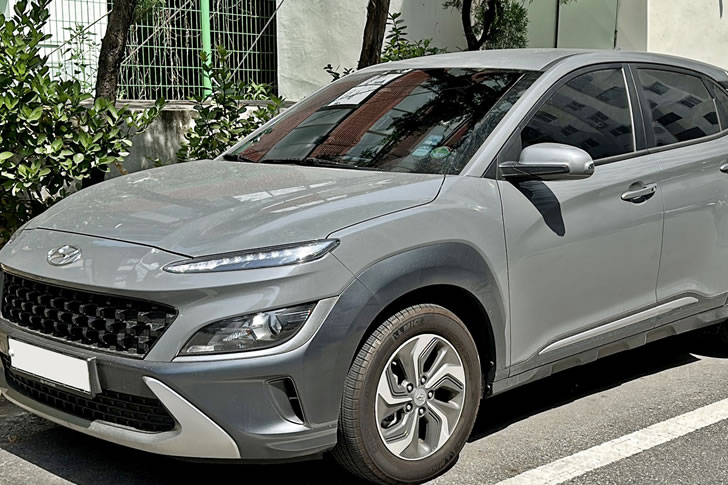Hyundai Kona Pricing
The Hyundai Kona, a compact crossover SUV, has carved out a significant niche in a fiercely competitive segment, thanks to its blend of style, comfort, and value. As car buyers increasingly prioritize both cost-efficiency and quality, understanding the pricing options and associated features of vehicles like the Hyundai Kona is more important than ever. This article delves into the various pricing tiers, standard features, and available add-ons for the Kona, helping prospective buyers make an informed decision.

Overview of the Hyundai Kona
Since its debut, the Hyundai Kona has been applauded for its dynamic design, robust performance capabilities, and advanced safety features. It is offered in multiple trim levels, each providing different features and performance specifications tailored to various driving needs and buyer preferences. The Kona’s relatively small footprint conceals a surprisingly spacious interior, making it an excellent choice for city driving and maneuvering in tight spaces.
Kona Pricing Structure
The Hyundai Kona’s pricing varies significantly across its multiple trims. The base model usually starts at a competitive price point, often around \$21,300. This model, typically named the Kona SE, offers essential features such as a 147-hp 2.0-liter four-cylinder engine, a six-speed automatic transmission, and front-wheel drive. This trim includes basic but essential features such as a rearview camera, lane-keeping assist, and a touchscreen infotainment system with smartphone integration.
As one moves up to the higher trims such as SEL, SEL Plus, and Limited, the price increases, with top-tier models like the Kona Limited and Kona Ultimate reaching approximately \$26,200 and \$28,250, respectively. These higher trims offer more powerful engines, such as a 175-hp 1.6-liter turbo-four engine, advanced safety features, leather seats, larger touchscreen displays, and high-end audio systems.
Electric Variant – Hyundai Kona Electric
One of the most significant additions to the Kona line is its electric variant, the Kona Electric. Starting around \$34,000, the Kona Electric is priced higher than the gas-powered versions but offers considerable long-term savings in fuel costs and lower maintenance requirements. Powered by an electric motor with a 258-mile range on a full charge, the Kona Electric provides an eco-friendly alternative without sacrificing performance. It appeals to environmentally conscious drivers looking to reduce their carbon footprint.
Cost of Ownership
The overall cost of owning a Hyundai Kona goes beyond the initial purchase price. Prospective buyers should consider additional factors such as fuel efficiency, insurance costs, and depreciation. The base Kona model offers commendable fuel efficiency at approximately 30 miles per gallon combined, which can lead to significant savings over the vehicle’s lifespan. Insurance costs vary by location and driver history but are generally favorable due to the Kona’s strong safety ratings.
Depreciation is another critical factor, with the Hyundai Kona holding its value relatively well in the compact SUV segment. According to industry analysts, the Kona depreciates by about 40% after five years, which is on par with other vehicles in its class.
Awards and Recognition
The Hyundai Kona has not gone unnoticed in the automotive world, having garnered several awards and accolades that reinforce its value proposition. It was named a Top Safety Pick by the Insurance Institute for Highway Safety (IIHS) and received praise for its robust suite of standard safety features. Such recognitions are not only a testament to the vehicle’s quality but also help maintain its resale value over time.
Comparative Analysis with Competitors
When compared to competitors like the Honda HR-V, Mazda CX-3, and Toyota C-HR, the Kona often stands out for its blend of value, performance, and style. The Mazda CX-3 offers a sportier ride, and the Honda HR-V provides a more spacious interior, yet neither matches the Kona in terms of standard technological amenities. The Toyota C-HR, while similar in pricing, does not offer an all-wheel drive, limiting its appeal in climates where this feature is in demand.
Conclusion
In conclusion, the Hyundai Kona represents a versatile and economical choice in the compact SUV market. Whether you are interested in the fuel-efficient base model, the luxurious Limited trim, or the environmentally friendly Kona Electric, Hyundai offers a Kona that fits various lifestyles and budgets. With its competitive pricing, comprehensive set of features, and favorable ownership costs, the Kona continues to be an attractive option for savvy car buyers looking for a reliable and stylish compact crossover SUV.







Recent Comments